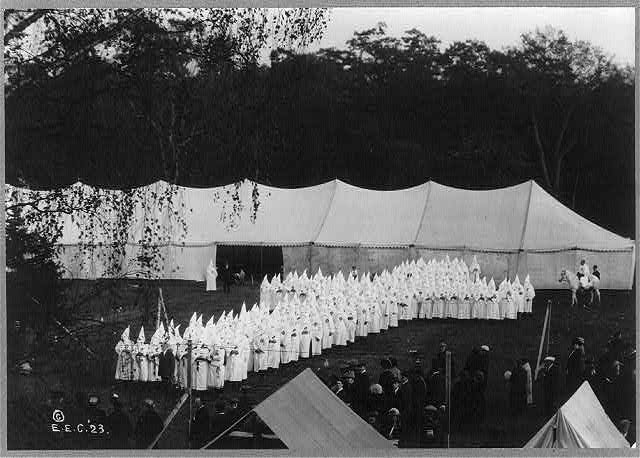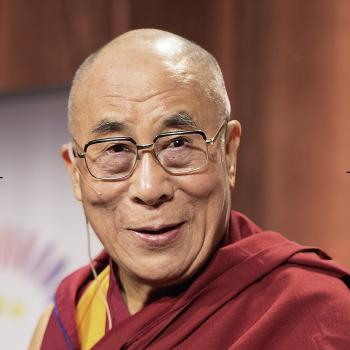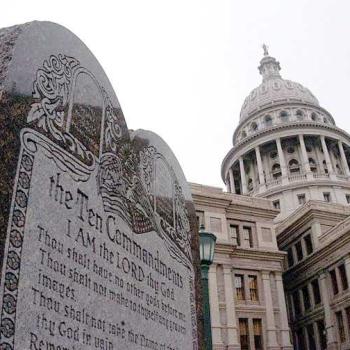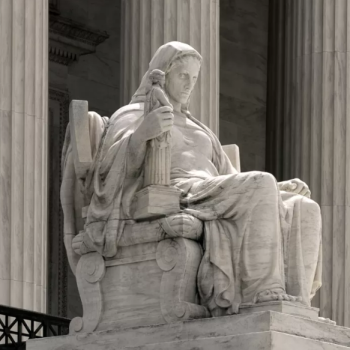Christian nationalism is much in the news these days, at least in the United States. It may be in other places as well. What is Christian nationalism? Andrew Whitehead and Samuel Perry, co-authors of the book Taking America Back for God: Christian Nationalism in the United States (Oxford University Press, 2020), define Christian nationalism this way:
[W]e mean “Christian nationalism” to describe an ideology that idealizes and advocates a fusion of American civil life with a particular type of Christian identity and culture. We use “Christian” here in a specific sense. We are not referring to doctrinal orthodoxy or personal piety. (In fact, we find some Christian nationalists can be quite secular.) Rather, the explicit ideological content of Christian nationalism comprises beliefs about historical identity, cultural preeminence, and political influence. But just as important, it also contains ideological content that is often implicit. This includes symbolic boundaries that conceptually blur and conflate religious identity (Christian, preferably Protestant) with race (white), nativity (born in the United States), citizenship (American), and political ideology (social and fiscal conservative).
To a fanatical Christian nationalist, if you don’t check all of those boxes, you aren’t a “real American.” Let me emphasize that Christian nationalism in the United States is, more often than not, more about loyalty to an idea of what an American is supposed to be than about devotion to Jesus. It is also about how only some people should be allowed to hold power in the United States. It tends to inhabit a political culture that also favors a particular set of political beliefs — “election fraud conspiracy theories, QAnon ideology, gun rights and lingering anger over Covid-related restrictions.” The hard-core Christian nationalists tend to be a paranoid crew. They believe their country is being, or has been, taken away from them by unholy powers who are not “real Americans.” Christian nationalists are not necessarily deeply devout Christians. Some may be, but others seem to not know the Beatitudes from a toaster. See also “Christians Nationalism” Is Anti-Christian and The Dangers of Christian Nationalism for a perspective from other Christians.
The “Christian Nation” and Christian Nationalism
The widely held belief that the United States was founded expressly to be a Christian nation, with laws and values based on Christianity, probably goes back to the early 19th century. This is a topic I wrote about in “The Myth of the Christian Nation,” so please go there for this early part of the story. And yes, this is a myth. Not only did the founders deliberately create an entirely secular government when they wrote the Constitution, but several of the founders were Deists who didn’t believe in the divinity of Christ.
Mere belief in the Christian nation myth doesn’t necessarily get one all the way to Christian nationalist status. Christian nationalism is not a clearly defined movement, and Christian nationalists don’t all speak with one voice. Most insist they do not want to turn the United States into a theocracy. However, many seem to be calling for a theocracy even while avoiding the word “theocracy.” “If we are going to have one nation under God, which we must, we have to have one religion. One nation under God and one religion under God.” These are the words of Michael Flynn at a Re-Awaken America conference in San Antonio, November 2021.
There’s also this: “The church is supposed to direct the government, the government is not supposed to direct the church,” Rep. Lauren Boebert, a Republican from Colorado, said recently at Cornerstone Christian Center near Aspen. “I’m tired of this separation of church and state junk.” Congregants applauded wildly. Again, many Christian ministers and organizations have spoken out in opposition to Christian nationalism. Some ministers have said it is idolatry.
Early Christian Nationalism and the Ku Klux Klan
Where did this movement originate? A number of historians see parallels between today’s Christian nationalists and the Ku Klux Klan in the early 20th century. (And I’m sure many Christian nationalists would object to that comparison.) We’re talking here about what’s called the “second” Klan. The original Klan that organized after the Civil War was crushed by federal troops, courtesy of President Ulysses S. Grant. Then in 1915 a new Ku Klux Klan was organized by a Methodist preacher named William Joseph Simmons. (See The preacher who used Christianity to revive the Ku Klux Klan,) This reconstituted Klan saw itself as a kind of Christian fraternity. The pointy-hooded white robe (which was worn only by the second Klan, not the first, in spite of what you may have seen in movies) stood for purity. The Klan burned crosses (again, cross burning was done only by the second Klan) to signify the light of Christ. Their group rituals often involved Bibles and other Christian symbols, and they recruited through churches. “By the early 1920s, the Klan boasted 5 million members across the country and had infiltrated thousands of churches with its hateful doctrines,” DeNeen L. Brown wrote for the Washington Post.
This new Klan also presented itself as hyper-patriotic, “100 percent American,” in its promotional literature. To them, that meant being a white Protestant man born in the U.S. The reconstituted Klan still terrorized Black Americans, but Klan members also spoke out against the “threats” to the nation posed by immigrants, Jews, and Catholics. In fact, the main targets of many “Klaverns” were immigrants from southern and eastern Europe, who were mostly Catholic. In the southwest, the Klan attacked Latinos, and Pacific Coast klaverns went after Asians.
The new Klan was, for a time, a major political force that in their literature promoted “traditional values,” “morality,” and conservative political causes. They supported Prohibition and opposed labor unions, for example. Many were well connected politically, and openly acknowledged Klan members served in many levels of state and federal government. The second Klan reached its peak of influence about 1925. Then its own violence and extremism began to cost it support. By 1930 people were facing the Great Depression and had bigger things to worry about than Catholic immigrants, and the second Klan fizzled away. Although it didn’t die completely.

Some Things Change; Some Things Don’t
The 1920s Ku Klux Klan and today’s Christian nationalists are far from identical. Christian nationalism is, so far, less violent than the Klan (although do see this report on Christian nationalism and the January 6, 2021, insurrection at the Capitol). Christian nationalists today seem fine with Catholics as long as they are politically conservative Catholics. Many Christian nationalists object to being associated with racism. But Christian nationalism and white supremacy do appear to overlap quite a bit. The Baptist Joint Committee for Religious Liberty has produced some informative webinars on how How Racism Undergirds Christian Nationalism. Christian nationalism has also been linked to anti-Semitism.
How Capitalism Became Godly
Franklin Roosevelt attended the first of his four presidential inaugurations in March 1933, and the New Deal began. The New Deal was embraced by most working folks, but not by the titans of industry. Among other things the New Deal included many new regulations on business and banking, and it empowered labor unions. Corporate leaders were accustomed to being treated with much hands-off deference and lots of tax cuts from the previous Warren, Coolidge, and Hoover administrations. They were not happy.
Corporate leaders launched a massive public relations campaign to sell people on the virtues of unregulated free enterprise. But the people had been living through years of unregulated free enterprise, and they’d seen it all crash and burn in the Depression. They weren’t interested. Perhaps they would listen if they heard it from their ministers, though? In his book One Nation Under God: How Corporate America Invented Christian America (Basic Books, 2015), Princeton history professor Kevin Kruse writes how big business of the 1930s sold churches on the idea that Christianity and capitalism belong together.
Among other things, the corporate heads argued that the New Deal violated the Ten Commandments by making an idol of the federal government. The New Deal encouraged people to covet what the wealthy had. Taxing the wealthy to pay for New Deal programs was theft. The New Deal was sinful and was nothing but a form of pagan statism. A prominent minister, the Rev. James Fifield, became a willing front man for a movement primarily bankrolled by the heads of Sun Oil, General Motors, the U.S. Chamber of Commerce, and the National Association of Manufacturers. In a few short years tens of thousands of Christian ministers were preaching that the New Deal and all those government handouts were rotting America from within. Jesus called on them to cast off state slavery and embrace unregulated free enterprise and rugged individualism. If you hear some echoes of today’s libertarians, well, so do I. But this is another way that Jesus came to be politicized and Christianity associated with particular political views.
The John Birch Society
After World War II came the Cold War and decades of obsession with the threat of communism. I had never associated the ultraconservative John Birch Society with Christianity until I looked deeper. The John Birch Society was founded in 1958 by Robert H.W. Welch, Jr., who insisted that the JBS was not a religious organization. (John Birch was a Christian missionary in China who was killed by Maoists in 1945. That made him the first American casualty of Communism.) However, do see this Ph.D. dissertation by Carmen Celestini, “God, Country, and Christian Conservatives: The National Association of Manufacturers, the John Birch Society, and the Rise of the Christian Right.”
There is a lot of information here, but the major theme is that the Birchers promoted their anti-communist crusade in apocalyptic terms. This wasn’t just capitalism versus communism, but good versus evil and God versus Godlessness. The JBS did a lot of outreach to Christian leaders and organizations to promote the idea that Jesus wanted Christians to take up the fight against global communism, because it was their fight, too. And Christians responded. I can remember seeing pictures in my Lutheran Sunday school, circa 1960, showing Jesus standing next to an American flag and the Devil standing next to a Soviet flag. This was impressing the view that Americanism, capitalism, and Jesus were inseparable on us impressionable children.
The Original War on Christmas and Other Howlers
I learned from Celestini that Robert Welch was warning of a “war on Christmas” as early as 1959. Communists in the UN were behind it, he said, and its purpose was to weaken Christianity. Atheists were not welcome in the JBS, because atheism was associated with communism. Wait, then Jews were okay, then? The JBS has always maintained it is not an anti-Semitic organization. The Jewish Anti-Defamation League, however, disagrees. The ADL maintains a database of information on the Birchers you can access here.
In the 1960s, Robert Welch and the JBS went to war against the Civil Rights movement. “‘Civil Rights’ is a perfect example of Communist strategy and Communist tactics at work,” he said. In a 1965 John Birch Society Bulletin, Welch wrote about the “Negro Revolutionary Movement, now headed by Martin Luther King and all of the Communists with whom he has surrounded himself.” Further, the Civil Rights movement was “the most important single part of the Communist program and strategy for taking over our country.” The Rev, Dr. Martin Luther King was himself a Communist, the JBS claimed, and they circulated a photo of King that supposedly showed him attending a communist training school.
If you aren’t old enough to remember the 1960s, I assure you the cool people used to laugh at the John Birch Society. One person who wasn’t laughing was FBI director J. Edgar Hoover, who also believed that Dr. Martin Luther King was either a communist or under communist influence. The FBI’s intensive surveillance of the Rev. Dr. King is one of the more shameful moments of its history.
Next column: From the Moral Majority to Today













